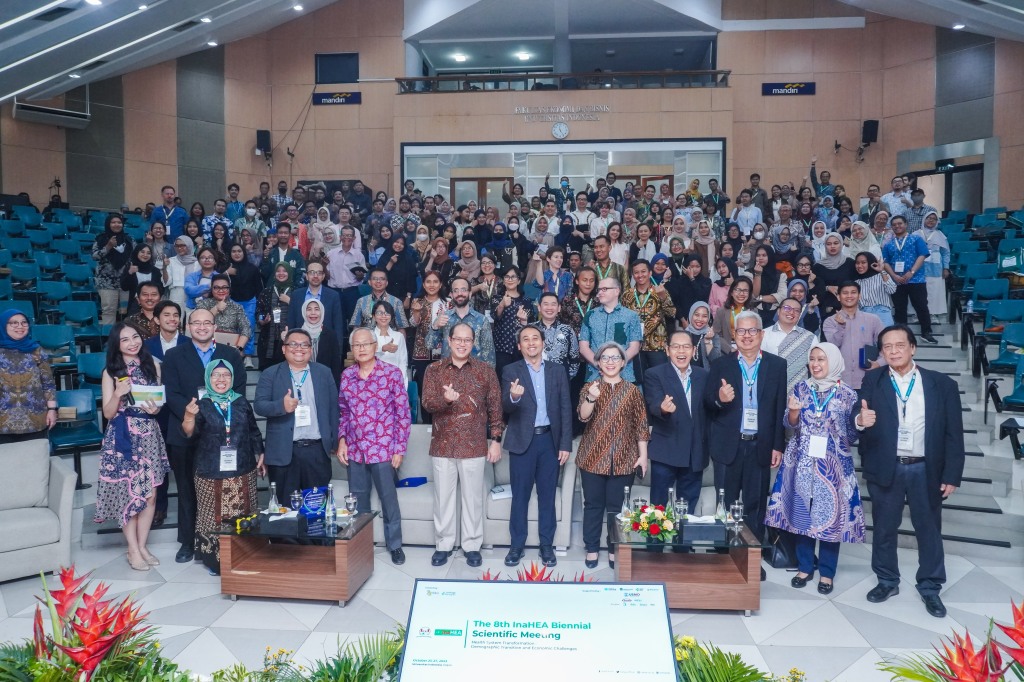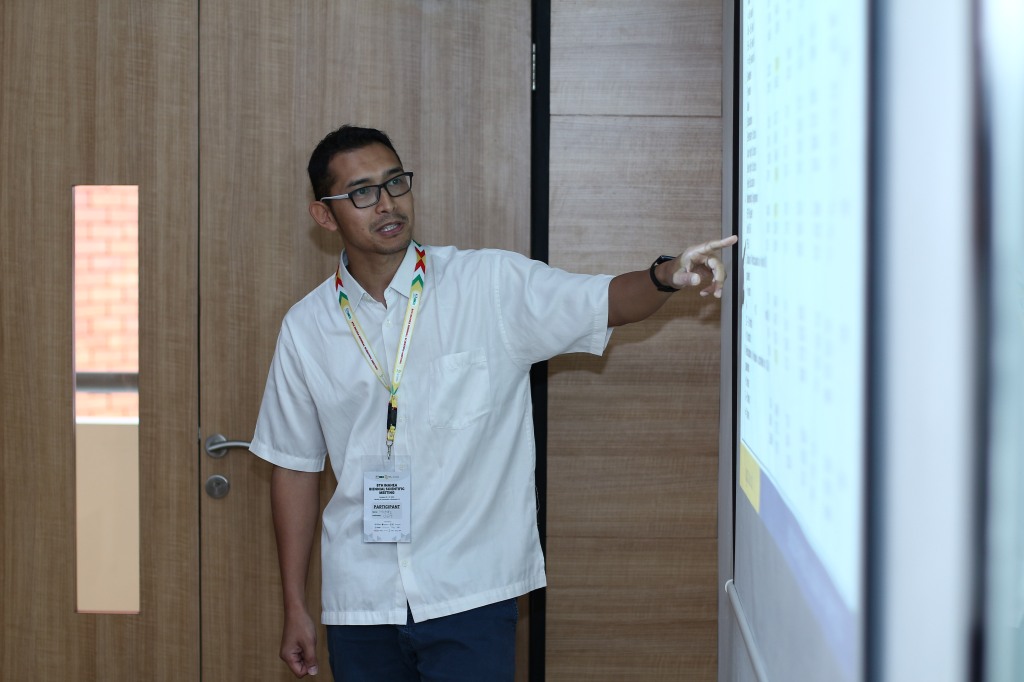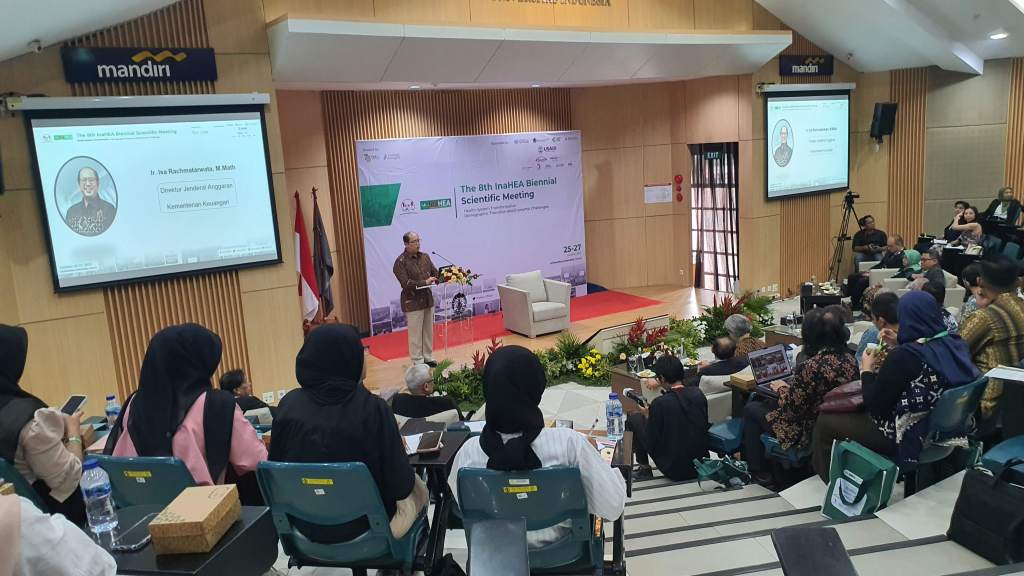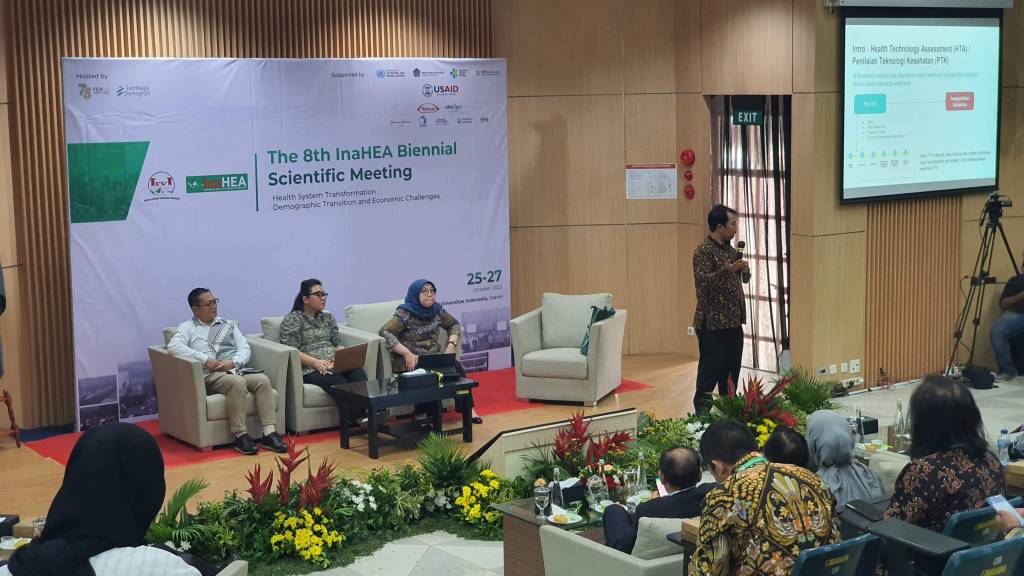







As Jakarta buzzed with the converging minds of health economists and policymakers, the 8th INA-HEA Biennial Scientific Meeting offered a profound glimpse into the evolving landscape of Indonesia’s health sector.
In the grand halls, Isa Rachmatarwata, representative from the Director-General of Budget at the Ministry of Finance, presented a compelling narrative about Indonesia’s economic challenges and health sector prospects. Despite the looming threat of the middle-income trap, Rachmatarwata suggested that sustained economic growth could be achieved by boosting productivity through strategic health investments. Anchoring his argument on the recent COVID-19 pandemic, he illustrated the government’s pivot towards health, with an emphasis on equitable access to prevent any citizen from being left behind.
The conference also shone a spotlight on the country’s strides towards Universal Health Coverage (UHC). With a remarkable 94% coverage rate as of mid-2023, the JKN program’s success story was a testament to the nation’s commitment. Yet, the discourse was not without its concerns. The burgeoning issues of chronic and non-communicable diseases laid bare the need for a paradigm shift towards sustainable health financing and robust public-private partnerships.
The demographic trends presented by Timothy Miller from the UN painted a picture of a future where the elderly population could potentially reshape the economic and social structures. With birth rates declining, a significant portion of health spending will inevitably be directed towards this growing demographic, posing a significant challenge for Indonesia’s health spending.
Amid the discussions, the concept of ‘active-healthy ageing’ was championed by Aris Ananta, serving as a clarion call to celebrate the ageing process rather than fear it. This approach underscored the need for a societal shift in how we perceive the twilight years—not as a burden but as a period of life worthy of investment and joy.
A pivotal part of the conference was dedicated to the role of Health Technology Assessment (HTA) in shaping Indonesia’s health policy. The debates were fierce and the stakes high as experts grappled with the question of integrating advanced health technologies into the JKN program. The consensus was clear: HTA should be leveraged to inform cost-effective and equitable health policy decisions, especially in a country where resources are finite.
The dengue fever sessions highlighted not just the clinical impact of the disease but its economic toll. With innovative solutions like dengue vaccines on the horizon, there was a palpable sense of urgency to address this public health threat more effectively.
The innovation dialogue, spearheaded by Prof. Laksono, addressed the critical balancing act between fostering health innovation and ensuring the sustainability of the health system. The discussions acknowledged the potential of new technologies but also their implications for health economics and policy.
The conference closed with a call to action, urging the translation of research into actionable policies. There was a shared understanding that planning, implementing research, and aligning with institutional cultures and economic realities are vital for building healthcare resilience.
As attendees dispersed, the air was thick with ideas and the responsibility of carrying these insights forward. For Indonesia, the INA-HEA 2023 was not just a conference but a stepping stone towards a future where health economics and policy evolve in tandem to build a stronger, healthier nation.
